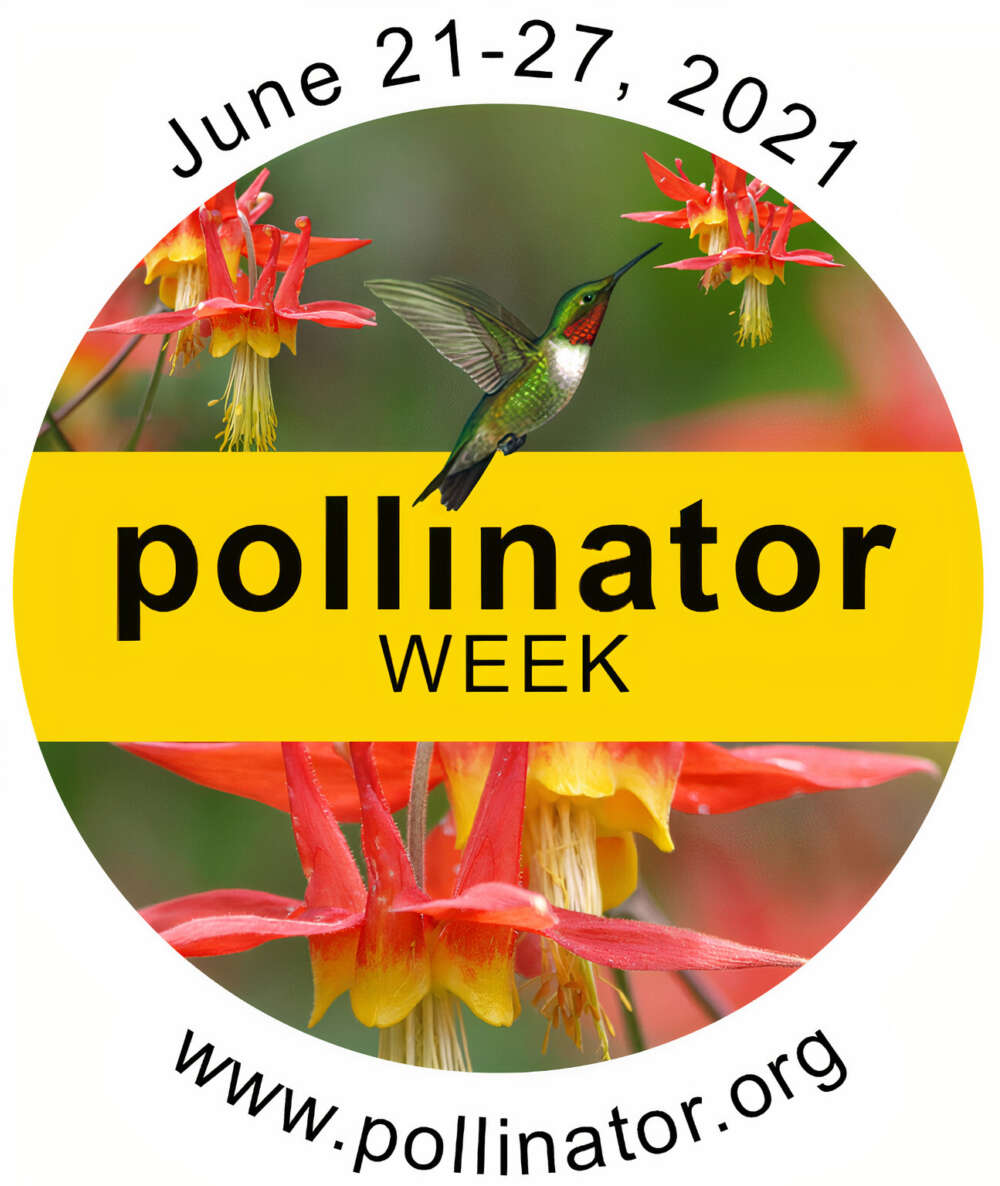National Pollinator Week is June 21 – June 27. Let’s Make Our Community A Pollinator Haven!

Photo: Pollinator.org
National Pollinator Week is June 21 – June 27. Let’s make our community a pollinator haven! For far too long, many homeowners and farmers have regarded insects as a pestilence and a nuisance. Losses of 75% and more of flying insects have been reported in the last quarter of a century, and anecdotal evidence confirms this trend: we just aren’t seeing as many butterflies and bees as we used to. Pesticides, habitat destruction and degradation, diseases, pollution, the proliferation of invasive plants, and climate change have all taken their toll. There’s no question that “bugs” cause widespread disease and crop loss, and they’re often a nagging nuisance that detracts from our enjoyment of nature. But we really can’t live without them! Pollinators, in particular, are indispensable; most plants would not be able to set seed if they were gone, and harvests of vegetables, fruits, and nuts would decline dramatically if they were absent or functionally extinct.It’s not just bees and butterflies that are lured to flowers’ sweet nectar and protein-packed pollen; moths, flies, beetles, hummingbirds, and wasps also appreciate this bounty. In addition, predators and parasites (ladybug beetles, lacewings, syrphid flies, braconid wasps…), whose larvae are wonderfully effective at keeping pest populations in check, are also pollinators as adults. Pollinator decline is a challenge that we can do something about! This is the first in a series of seven articles (one per day during National Pollinator Week) providing guidance and encouragement in transforming our properties and our communities into pollinator sanctuaries. Topics will include:
- trees, shrubs, vines, and canes that sustain pollinators throughout their lifecycles
- pollinator gardens, wildflower meadows, and ”lazy lawnmower lawns” for bees and butterflies
- no-dig sheet mulching to prepare planting beds
- identification and control of invasive plants, aggressive plants, and weeds
- providing water for insects, mud for butterflies, and nesting sites for native bees
- spreading the word about the importance of pollinators and advocating for pollinators in our communities
Join us! Send a message to info@johnroot.net if you’re interested in contributing your gardening expertise, volunteering during pollinator garden workdays, donating extra native perennials for public pollinator gardens, or helping to spread the word.
John Root
Amherst Area Friends of Pollinators.
www.johnroot.net
413.961.9059

1 thought on “National Pollinator Week is June 21 – June 27. Let’s Make Our Community A Pollinator Haven!”